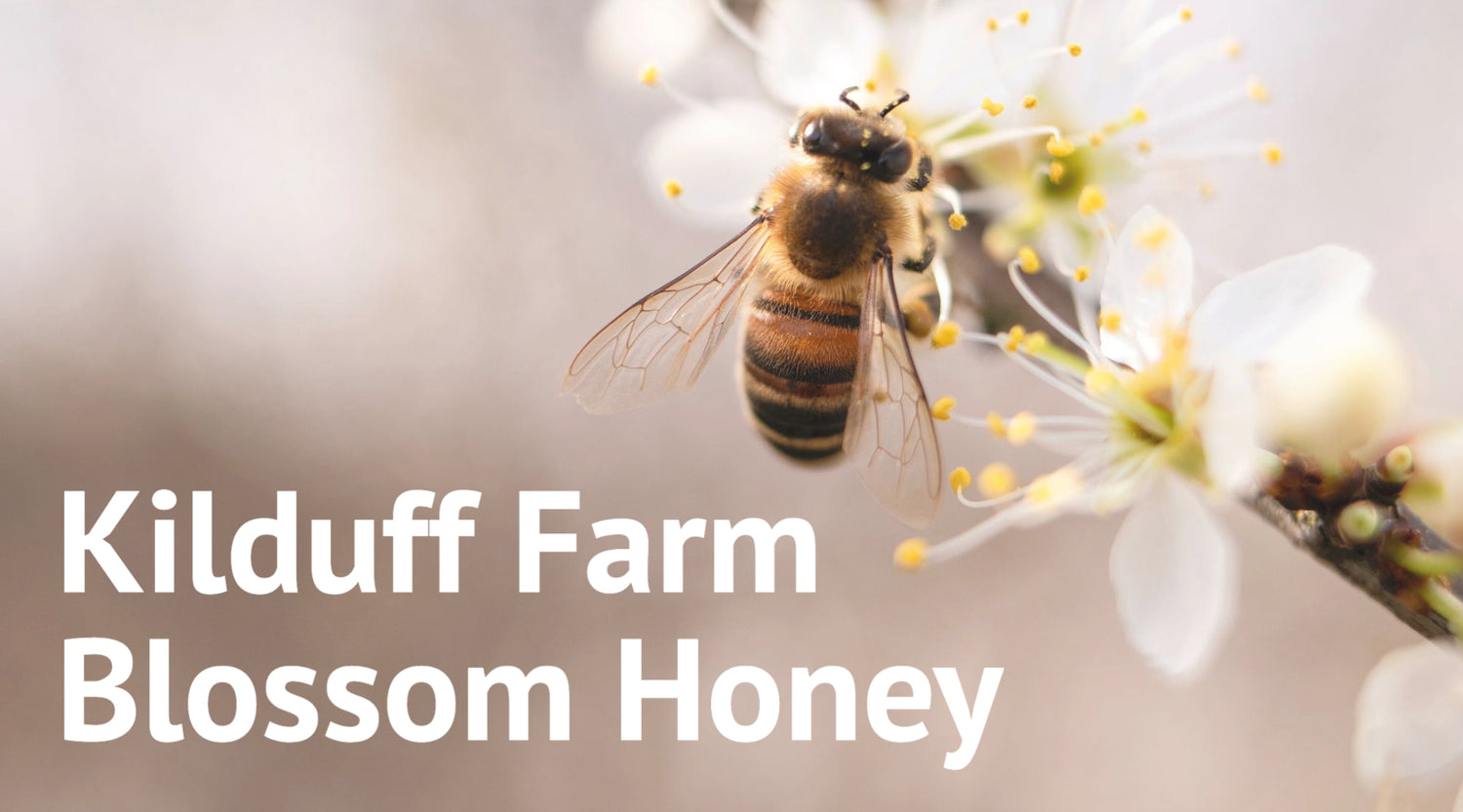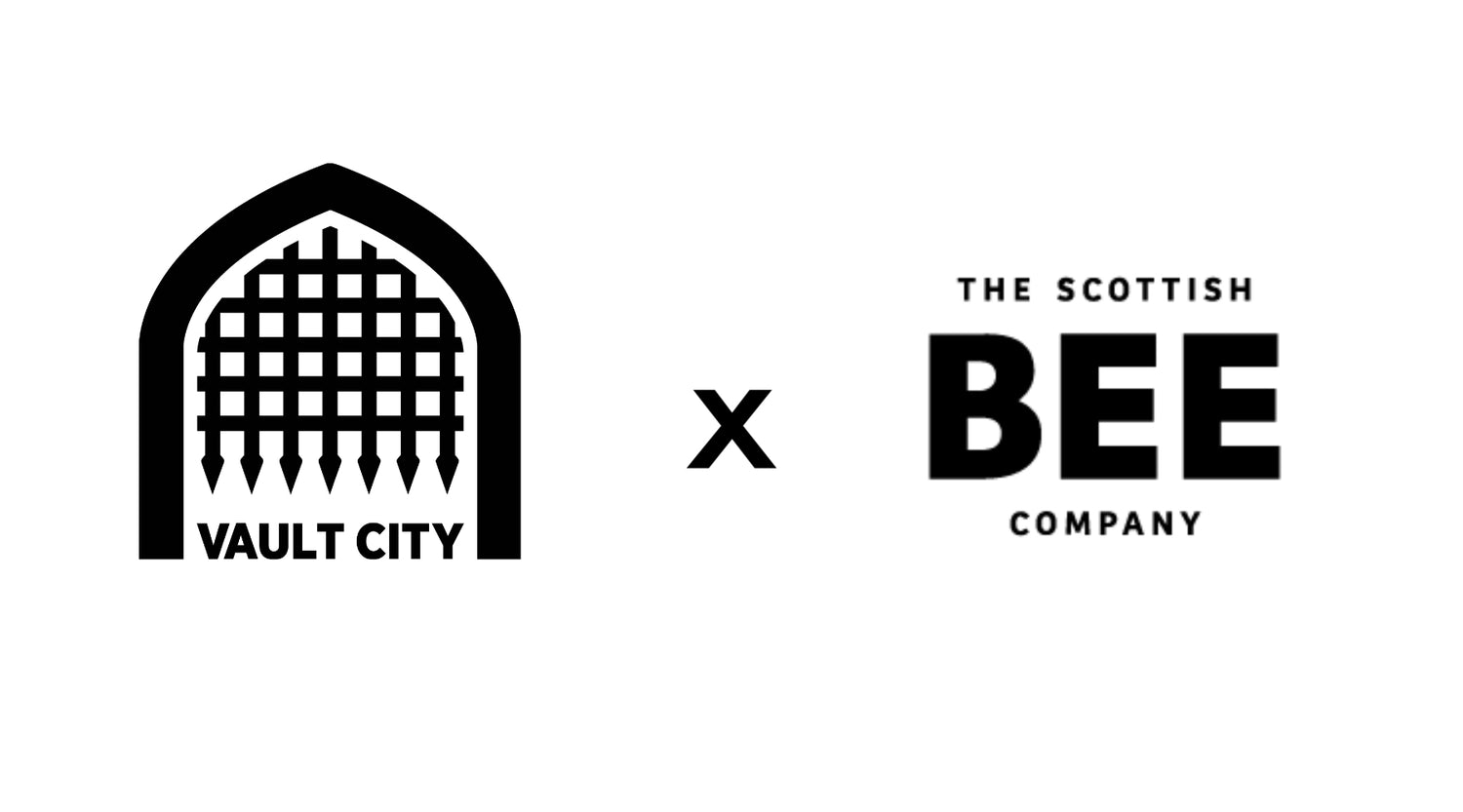Nearly a decade on from the Horsemeat Scandal, it seems we’re still a long way from understanding where our food comes from.
You may have seen in the news recently the terms ‘honey fraud’, ‘adulterated’ and ‘cheap honey’, but what exactly does it all mean? We wanted to briefly explain what has been happening and the reality of bee farming and the honey industry…
Did you know part of the global supply is bulked out with sugar syrup? In fact, one third of honey in international trade is reckoned to be adulterated or 100% false. Don’t be surprised if you were unaware, it’s not made obvious for consumers which is a huge part of the problem!
The only two sources of honey should be nectar and the secretions of living parts of a plant. However, these natural processes are often interfered with, or the final product adulterated. This is known as ‘honey fraud’.

What is honey fraud?
Honey fraud is the intentional tampering, through substitution or addition, of the natural product and processes to reduce the cost of its production and increase the perceived value for economic gain. as a rule of thumb, the cheaper the honey, the more likely it is to be adulterated.
How is honey adulterated?
- Dilution of the honey with artificial syrups
- Artificial feeding of bees during nectar flow (feeding sugar to the bees)
- Harvesting of immature honey (this involves human intervention in the product to prevent fermentation)
- Masking or mislabelling of geographic or botanical origins indicators
As it’s a high demand food, being the UK’s most popular spread ahead of jam in recent years, the demand outweighs the supply which leads to such practices. The FSA stated that honey is the third most adulterated food product in the world after milk and olive oil. Artisanal, independent producers of honey worldwide struggle to compete with industrial production, which drives down prices on supermarket shelves.
Honey fraud isn’t just a consumer rights atrocity, it has far reaching environmental implications. Artificially low margins for honey can mean sustainable beekeeping is no longer commercially viable. Beekeepers in the US are warning that if they go out of business there will be a shortage, not just of genuine honey, but of honeybees to pollinate the 75% of crops that depend to some extent on pollination to increase yield and quality.
Honey should be expensive to buy, because it’s difficult and expensive to produce. Yields are unreliable for reasons of crop failure and disease; it’s often a short harvest window, in remote and inaccessible places. The best honey has a ton of health benefits, and only a small amount is produced, so its priced accordingly. For The Scottish Bee Company, that means we can give our beekeepers the compensation they deserve for their expert knowledge of plant and animal biology, and the hard manual work they do in our isolated apiary sites.
Of course, not everyone has the resources or inclination to spend £8.49 on a jar of honey, but if they’re buying sugar syrup they should at least have the information on which to make a meaningful decision.
How can you tell ‘real’ honey from ‘fake’ honey?
As consumers, you can check the labels for key phrases such as:
- Straight from the hive
- Unpasteurised
- Never heated above the temperature of the hive
You can also check the ingredients on the jar. If ingredients such as sugar, rape seed oil or corn syrup are mentioned, this means additives have been used to artificially sweeten and dilute the pure honey.
We feel it’s our responsibility to increase awareness of fraud in the industry. We promise purity and authenticity of our products, not only to our benefit, but to protect consumers, bee farmers, food security and the biodiversity of the planet. We aim to assure our provenance to you through our honey being tested and kitemarked by the BSI food standards, transparency in our processes and our main aim always being to protect our pollinators over profit.

We stand with other British beekeepers who call for stricter labeling on supermarket blends to identify the countries of origin. This requires the FSA and trading standards officers to take more accountability and effective action against the threat from food fraudsters and for regulations to be properly policed.







4 comments
I do nnot evesn know how I ended uup here, but I
thought this post was good. I do not know who you are but certainly
you’re going tto a famous blogger if you are not already ;
) Cheers! https://penzu.com/p/6bb0260c
Every useful content one should know
I had no idea the above went on , I know your honey tastes great and is worth the extra cost now I know why !
Regards John.
Thank you for the work you do abs for raising awareness of honey fraud. Just about all honey sold in supermarkets are labelled, a blend of EU and non EU honey. No other ingredients. Does this mean it’s just honey? I can tell the difference when it’s actual honey because the taste is different. With supermarket honey it tastes like flavoured syrup.